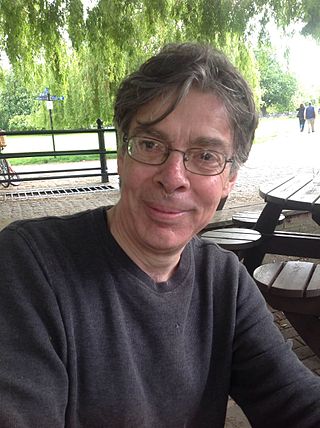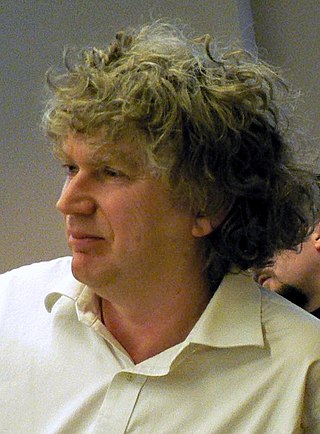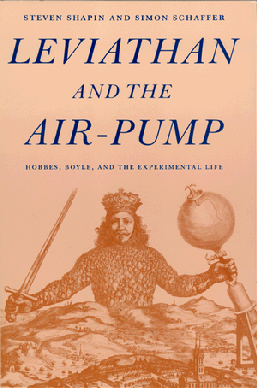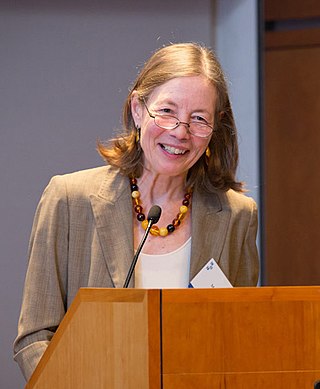The history of science and technology (HST) is a field of history that examines the understanding of the natural world (science) and the ability to manipulate it (technology) at different points in time. This academic discipline also studies the cultural, economic, and political impacts of and contexts for scientific practices.
Reproducibility, closely related to replicability and repeatability, is a major principle underpinning the scientific method. For the findings of a study to be reproducible means that results obtained by an experiment or an observational study or in a statistical analysis of a data set should be achieved again with a high degree of reliability when the study is replicated. There are different kinds of replication but typically replication studies involve different researchers using the same methodology. Only after one or several such successful replications should a result be recognized as scientific knowledge.
The scientific community is a diverse network of interacting scientists. It includes many "sub-communities" working on particular scientific fields, and within particular institutions; interdisciplinary and cross-institutional activities are also significant. Objectivity is expected to be achieved by the scientific method. Peer review, through discussion and debate within journals and conferences, assists in this objectivity by maintaining the quality of research methodology and interpretation of results.
William Julius Wilson is an American sociologist, a professor at Harvard University, and an author of works on urban sociology, race, and class issues. Laureate of the National Medal of Science, he served as the 80th President of the American Sociological Association, was a member of numerous national boards and commissions. He identified the importance of neighborhood effects and demonstrated how limited employment opportunities and weakened institutional resources exacerbated poverty within American inner-city neighborhoods.

The sociology of scientific knowledge (SSK) is the study of science as a social activity, especially dealing with "the social conditions and effects of science, and with the social structures and processes of scientific activity." The sociology of scientific ignorance (SSI) is complementary to the sociology of scientific knowledge. For comparison, the sociology of knowledge studies the impact of human knowledge and the prevailing ideas on societies and relations between knowledge and the social context within which it arises.
The strong programme or strong sociology is a variety of the sociology of scientific knowledge (SSK) particularly associated with David Bloor, Barry Barnes, Harry Collins, Donald A. MacKenzie, and John Henry. The strong programme's influence on science and technology studies is credited as being unparalleled. The largely Edinburgh-based school of thought aims to illustrate how the existence of a scientific community, bound together by allegiance to a shared paradigm, is a prerequisite for normal scientific activity.
S. Barry Barnes was Professor of Sociology at the University of Exeter.

Theda Skocpol is an American sociologist and political scientist, who is currently the Victor S. Thomas Professor of Government and Sociology at Harvard University. She is best known as an advocate of the historical-institutional and comparative approaches, as well as her "state autonomy theory". She has written widely for both popular and academic audiences. She has been President of the American Political Science Association and the Social Science History Association.
Neil Joseph Smelser (1930–2017) was an American sociologist who served as professor of sociology at the University of California, Berkeley. He was an active researcher from 1958 to 1994. His research was on collective behavior, sociological theory, economic sociology, sociology of education, social change, and comparative methods. Among many lifetime achievements, Smelser "laid the foundations for economic sociology."

Simon J. Schaffer is a historian of science, previously a professor of the history and philosophy of science at the Department of History and Philosophy of Science at the University of Cambridge and was editor of The British Journal for the History of Science from 2004 to 2009.
In science studies, boundary-work comprises instances in which boundaries, demarcations, or other divisions between fields of knowledge are created, advocated, attacked, or reinforced. Such delineations often have high stakes involved for the participants, and carries with it the implication that such boundaries are flexible and socially constructed.

Trevor J. Pinch was a British sociologist, part-time musician and chair of the science and technology studies department at Cornell University. In 2018, he won the J.D. Bernal Prize from the Society for Social Studies of Science for "distinguished contributions to Science and Technology Studies over the course of [a] career."

Michael Cyril William Hunter is emeritus professor of history in the department of history, classics and archaeology and a fellow of Birkbeck, University of London. Hunter is interested in the culture of early modern England. He specialises in the history of science in seventeenth- and early eighteenth-century England, particularly the work of Robert Boyle. In Noel Malcolm's judgement, Hunter "has done more for Boyle studies than anyone before him ".
Christian Stephen Smith is an American sociologist, currently the William R. Kenan Jr. Professor of Sociology at the University of Notre Dame. Smith's research focuses primarily on religion in modernity, adolescents and emerging adults, sociological theory, philosophy of science, the science of generosity, American evangelicalism, and culture. Smith is well known for his contributions to the sociology of religion, particularly his research into adolescent spirituality, as well as for his contributions to sociological theory and his advocacy of critical realism.

The George Sarton Medal is the most prestigious award given by the History of Science Society. It has been awarded annually since 1955. It is awarded to an historian of science from the international community who became distinguished for "a lifetime of scholarly achievement" in the field.

Leviathan and the Air-Pump: Hobbes, Boyle, and the Experimental Life is a book by Steven Shapin and Simon Schaffer. It examines the debate between Robert Boyle and Thomas Hobbes over Boyle's air-pump experiments in the 1660s. In 2005, Shapin and Schaffer were awarded the Erasmus Prize for this work.

Mary Jo Nye is an American historian of science and Horning Professor in the Humanities emerita of the History Department at Oregon State University. She is known for her work on the relationships between scientific discovery and social and political phenomena.
Charles Coulston Gillispie was an American historian of science. He was the Dayton-Stockton Professor of History of Science, Emeritus at Princeton University. He was succeeded by Arno J. Mayer.

Michèle Lamont is a Canadian sociologist who is the Robert I. Goldman Professor of European Studies and a professor of Sociology and African American Studies at Harvard University. She is a contributor to the study of culture, inequality, racism and anti-racism, the sociology of morality, evaluation and higher education, and the study of cultural and social change. She is the recipient of the Gutenberg Award and the Erasmus award, for her "devoted contribution to social science research into the relationship between knowledge, power, and diversity." She has received honorary degrees from five countries. and been elected to the British Academy, Royal Society of Canada, Chevalier de l’Ordre des Palmes Academiques, and the Sociological Research Association. She served as president of the American Sociological Association from 2016 to 2017.

The Hobbes–Wallis controversy was a polemic debate that continued from the mid-1650s well into the 1670s, between the philosopher Thomas Hobbes and the mathematician and clergyman John Wallis. It was sparked by De corpore, a philosophical work by Hobbes in the general area of physics. The book contained not only a theory of mathematics subordinating it to geometry and geometry to kinematics, but a claimed proof of the squaring of the circle by Hobbes. While Hobbes retracted this particular proof, he returned to the topic with other attempted proofs. A pamphleteering exchange continued for decades. It drew in the newly formed Royal Society, and its experimental philosophy to which Hobbes was opposed.











